
OR
Action to counter 'economic aggression' by Beijing
Trump to punish China for tariffs, Investment restrictions
Published On: March 23, 2018 02:58 PM NPT By: Agencies
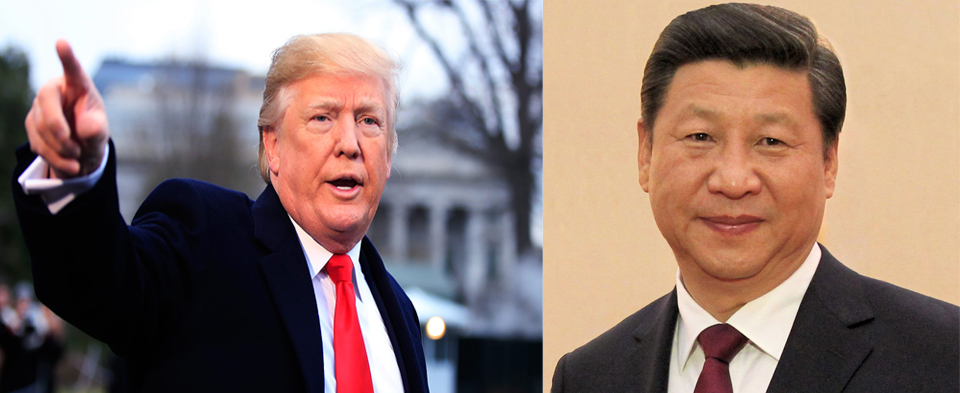
UNITED STATES, Mar 23: The President of America Donald Trump administration will impose up to $60 billion in trade restrictions on China to counter a concerted program of Chinese economic aggression against the United States, President Donald Trump announced Thursday.
Trump signed a directive based on the results of a U.S. Trade Representative (USTR) office investigation that blamed China for cyber attacks, forced technology transfers by U.S. businesses in China, and systematically targeting American technology for theft and acquisition.
To counter China's unfair trade practices, the United States will seek to recoup $50 billion by imposing tariffs on Chinese goods, mostly technology-related products, Trump administration officials told reporters.
The directive signed by Trump orders U.S. Trade Representative Robert Lighthizer to draw up a list of tariffs on Chinese products and to raise unfair Chinese trade practices at the World Trade Organization. The memorandum to agency heads also calls for restricting Chinese investment in the United States over concerns the purchases are harming national security.
The list of Chinese products to be hit with tariffs will be published in the next several days. Formal imposition of the tariffs will not be carried out for several months.
In Beijing, China threatened to retaliate. The Commerce Ministry issued a list of U.S. products, ranging from steel to pork, that could face tariffs.
Treasury Secretary Steven Mnuchin was directed to review ways to prevent China from buying critical high-technology industries in the United States.
The Treasury-led Committee on Foreign Investment in the United States already has blocked several recent Chinese attempts to buy critical U.S. technology companies in recent months over fears they would undermine American security.
The USTR investigation revealed China has strategic plans to dominate critical industries in the United States and around the world by 2025.
After stating he holds "tremendous respect" for Chinese leader Xi Jinping, Trump said in announcing the coming U.S. trade restrictions that they were the result of China failing to address a trade imbalance of more than $500 billion, and for engaging in the rampant theft of American intellectual property.
"We have a tremendous intellectual property theft situation going on which, likewise, is [costing] hundreds of billions of dollars, and that's on a yearly basis," Trump said.
Trump said the total amount of tariffs imposed after a public review over the next several weeks could be "about $60 billion."
Peter Navarro, director of White House trade and industrial policy, said the trade penalties were the result of years of failed talks with China dating to the George W. Bush administration seeking to address U.S. concerns.
China's 2025 strategy is a "blueprint for domination of the industries of the future, whether it be artificial intelligence, robotics, quantum computing," Navarro said.
Another Chinese document uncovered during the USTR investigation that contributed to the U.S. trade action is a 2006 medium-to-long range plan for science and technology acquisition.
"If China dominates the industries of the future, it'd be very difficult for the United States to have an economic future," Navarro said.
"So the bottom line here: What the United States is doing is simply strategically defending itself against this particular form of economic aggression," he said.
Since China joined the World Trade Organization, despite Beijing's not having a free market economic system, China's economy grew from $1 trillion to $12 trillion. The U.S. economy, by contrast, sputtered with very low economic growth.
"The contrast between China's growth and its unfair trade practices, and what had happened to the U.S. in terms of growth and wage growth, is quite startling," Navarro said.
Seeking $50 billion in tariffs is a conservative estimate to address American losses to China and does not include "hundreds of billions of dollars" in Chinese cyber thefts, Navarro said.
The USTR investigation was launched in August and found that China exploits foreign ownership restrictions on companies in China through joint ventures that require sharing technology or pressuring companies into transferring propriety information.
The practice undermines the value of U.S. investments and weakens global competitiveness.
China also was found by the USTR to impose substantial restrictions on U.S. companies that prohibit the companies' from fairly bargaining on the licensing of U.S. technology.
Additionally, China is systematically buying U.S. companies to obtain cutting-edge technologies and intellectual property as part of Chinese government planning.
On cyber attacks, the presidential directive said China "conducts and supports unauthorized intrusions into, and theft from, the computer networks of U.S. companies."
"These actions provide the Chinese government with unauthorized access to intellectual property, trade secrets, or confidential business information, including technical data, negotiating positions, and sensitive and proprietary internal business communications, and they also support China's strategic development goals, including its science and technology advancement, military modernization, and economic development," the directive said.
Trump said he wants trade practices to be reciprocal and has asked China to reduce the trade deficit "immediately" by $100 billion. He said China is charging a 25 percent tariff on U.S. automobiles sold to China while the United States charges China only 2 percent on imported Chinese cars.
"That's not good," the president said. "We've had this abuse by many other countries and groups of countries that were put together in order to take advantage of the United States, and we don't want that to happen. We're not going to let that happen. It's probably one of the reasons I was elected, maybe one of the main reasons. But we're not going to let that happen."
Lighthizer, the USTR, said China is using a policy of "forced technology transfer" and "state capitalism" to buy American know-how and also is conducting cyber thefts.
"This is an extremely important action, very significant and very important for the future of the country, really, across industries," Lighthizer said.
Navarro, the trade policy director, China requires American companies in China to turn over their know-how in exchange for access to the market.
"The pattern we've seen, and it's very clear, is that these corporations that go over to China from America tend to earn some additional profits in the short run, which is good for them in the short run," Navarrow said. "But inevitably, they create Chinese competitors who have their technology, and those competitors first compete in the Chinese market against them, and then in regional and global markets."
That results in the American firms going out of business or being substantially diminished.
Domestically, Navarro said every billion dollars in trade deficit costs about 6,000 jobs, making the current total around 2 million lost jobs to China.
You May Like This
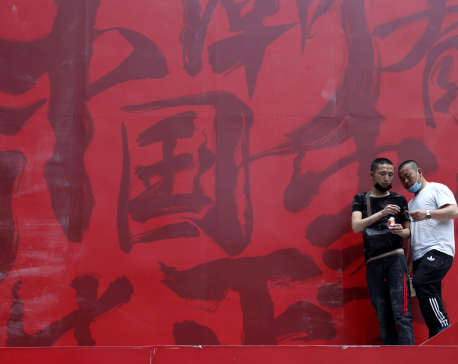
China says it will retaliate if Trump raises tariffs
BEIJING, May 9: China said Thursday it will retaliate if President Donald Trump goes ahead with more tariff hikes in... Read More...
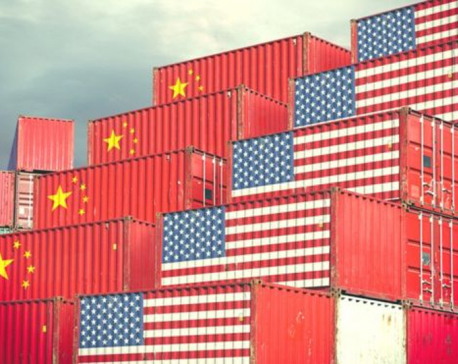
Trump tariffs make world 'poorer and more dangerous'
Oct 9: The International Monetary Fund has warned a trade war between the US and China risks making the world... Read More...
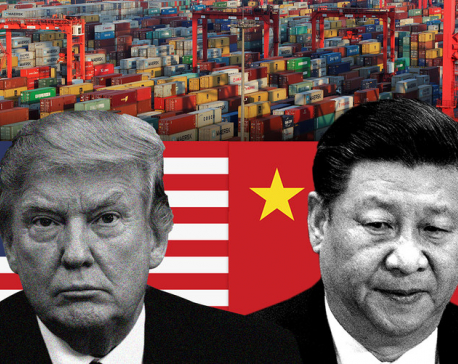
Defying Trump, US Senate Votes to Cut Tariffs on Hundreds of Items Made in China
The move is seen to run in direct conflict with the trade strategy of President Trump's cabinet, a member of... Read More...


Just In
- Nepal govt’s failure to repatriate Nepalis results in their re-recruitment in Russian army
- Sudurpaschim: Unified Socialist leader Sodari stakes claim to CM post
- ED attaches Raj Kundra’s properties worth Rs 97.79 crore in Bitcoin investment fraud case
- Newly-appointed Auditor General Raya takes oath
- CM Mahara expands Cabinet in Lumbini Province
- FinMin Pun addresses V-20 meeting: ‘Nepal plays a minimal role in climate change, so it should get compensation’
- Nepalis living illegally in Kuwait can return home by June 17 without facing penalties
- 'Trishuli Villa' operationalized with Rs 100 million investment














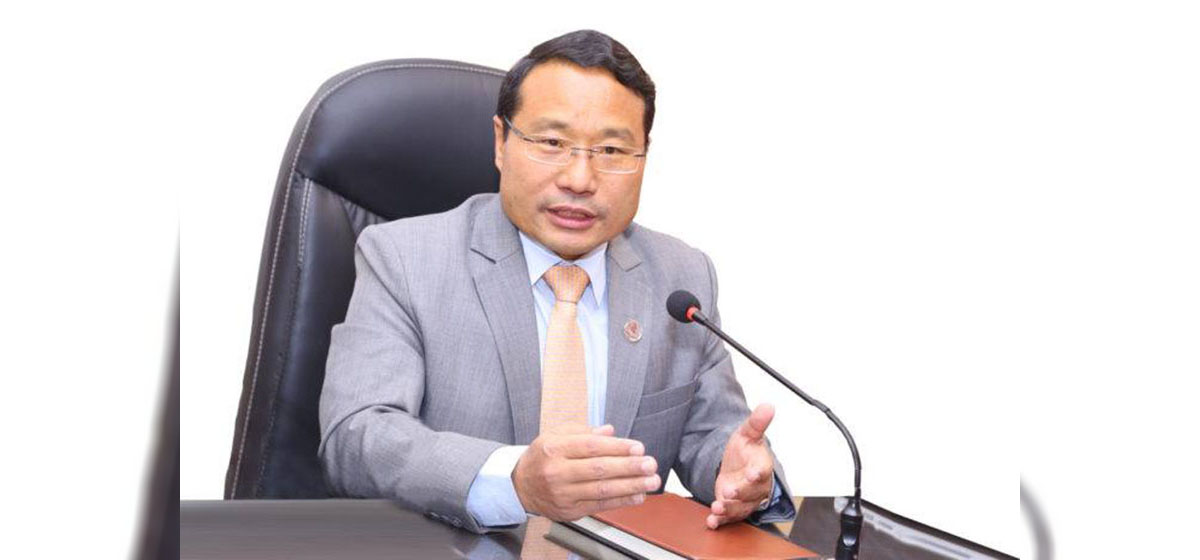

Leave A Comment